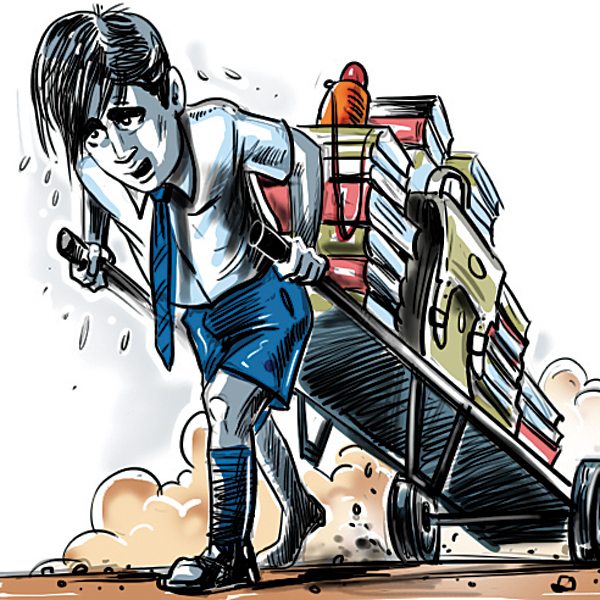CBSE has some exciting news for students. What seemed like an endless debate on pressure faced by young students, is finally coming to an end.

There’s no doubt that the student life occupies a deep place in our minds, full of warm fuzzy feelings and nostalgia. But only children know the burden of living with its requirements and specifications. And as the level of competition escalates to unseen heights every year, maintaining an excellent academic performance becomes every parent’s main objective.
Take a hard look at Indian students and children elsewhere like Canada or the U.S. and we see a lot of shocking differences. A recent study indicates that Indian students carry schoolbags 20 to 30 % heavier than weights that they can tolerate.
Fight Burdens With Light Bags
The issue of heavy bags has remained a polarized topic of discussion in many educational circles. Educationists argue that it’s necessary for children to develop an idea of the type of future atmosphere they’ll be studying in. But over the years, the battle raged over allegations of spinal injuries and weaker bodies, all linked to heavier bags. Now the Board has come to a concrete conclusion to make education a nurturing experience by cutting down on homework and school bags.
New Guidelines And Changes
In a recent circular released this Monday, CBSE has made it mandatory for schools and parents to adhere to the following changes for students of Classes I and II, issued by CBSE director of academics K.K. Choudhary:-
- Textbooks and reading material may not be hardbound but shouldn’t be heavy.
- Schools are urged not to prescribe excessive study material and should conduct routine checks to ensure that students are not carrying heavy bags.
- Teachers and custodians have no authority to punish students for not bringing any study material or textbooks.
- All projects regarding homework are to be undertaken as group activities during school hours. This is to eliminate the need of any tedious tasks that students might take home.
- Additional materials such as water bottles and loose sheets should be arranged by school authorities. All teachers are now required to integrate technology in the classroom learning.
A Mixed Reaction From All Sides
The new model is highly similar to the systems of classroom education in France and Finland. The current model seems more in touch with limitations set by state education boards of Tamil Nadu and Maharashtra.
The decision was lauded by doctors and parents all over. Physicians have, for years, warned about an alarming trend of physical impediments arising from the ever rising load on students. This includes fatigue, shoulder and neck pain, poorly developed muscles and an inclined posture.
Certain school Heads have however voiced their concerns over the model, calling it impractical and difficult to execute. According to such naysayers, schools have a strict curriculum to follow in which separate divisions for completing homework in school are totally disadvantageous.
Either way, it is truly appreciable to see the difference that can be made in the lives of young minds if the right people work for the right cause.